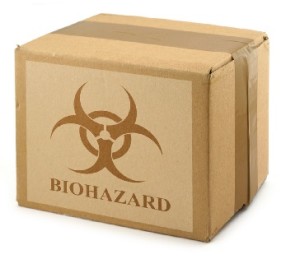Do you know what’s in your water? Hazardous wastes are poisonous byproducts of manufacturing, farming, city septic systems, construction, automotive garages etc.
Hazardous waste like heavy metals, radiation, and other toxins come in any form whether it be solid, liquid or sludge.
Improper disposal of these toxins can lead to serious health effects for humans and wildlife.
Improper Disposal Of Hazardous Waste
The rules of disposing hazardous waste are overseen in the U.S. by the Environmental Protection Agency (EPA). (I don’t understand the last part of the sentence “as well as state departments of the environmental protection” – not sure what you mean)
The EPA requires hazardous waste be handled with special precautions and disposed in the proper facilities located throughout the United States.
Although it may be challenging for businesses to keep up with federal and state regulations, it is important for human health and the environment that these hazardous chemicals be disposed properly.
Dumping toxic waste into the municipal sewer system is a common offence by companies that either don’t have the “time” to dispose the waste properly or feel that they won’t get caught. However, these chemicals can be traced back to the point of origin.
Illegal dumping is one of the most common violations companies make. However it is detrimental to the environment if these chemicals aren’t disposed of properly as they can seep into the groundwater with which we cook, drink and bathe.
There have been several cases where illegal dumping into the sewer system has led to fines, like Lowes and Wal-Mart who paid multi-million-dollar sums for the violation.
Other factors like not marking containers with hazardous waste labels, not keeping the lids on the containers at all times, out of date contact information on hazardous waste contingency plan, and having more than 55 gallons in satellite accumulation areas, are also mandatory laws to follow.
Violating these laws and state regulations will result in fines for companies.


